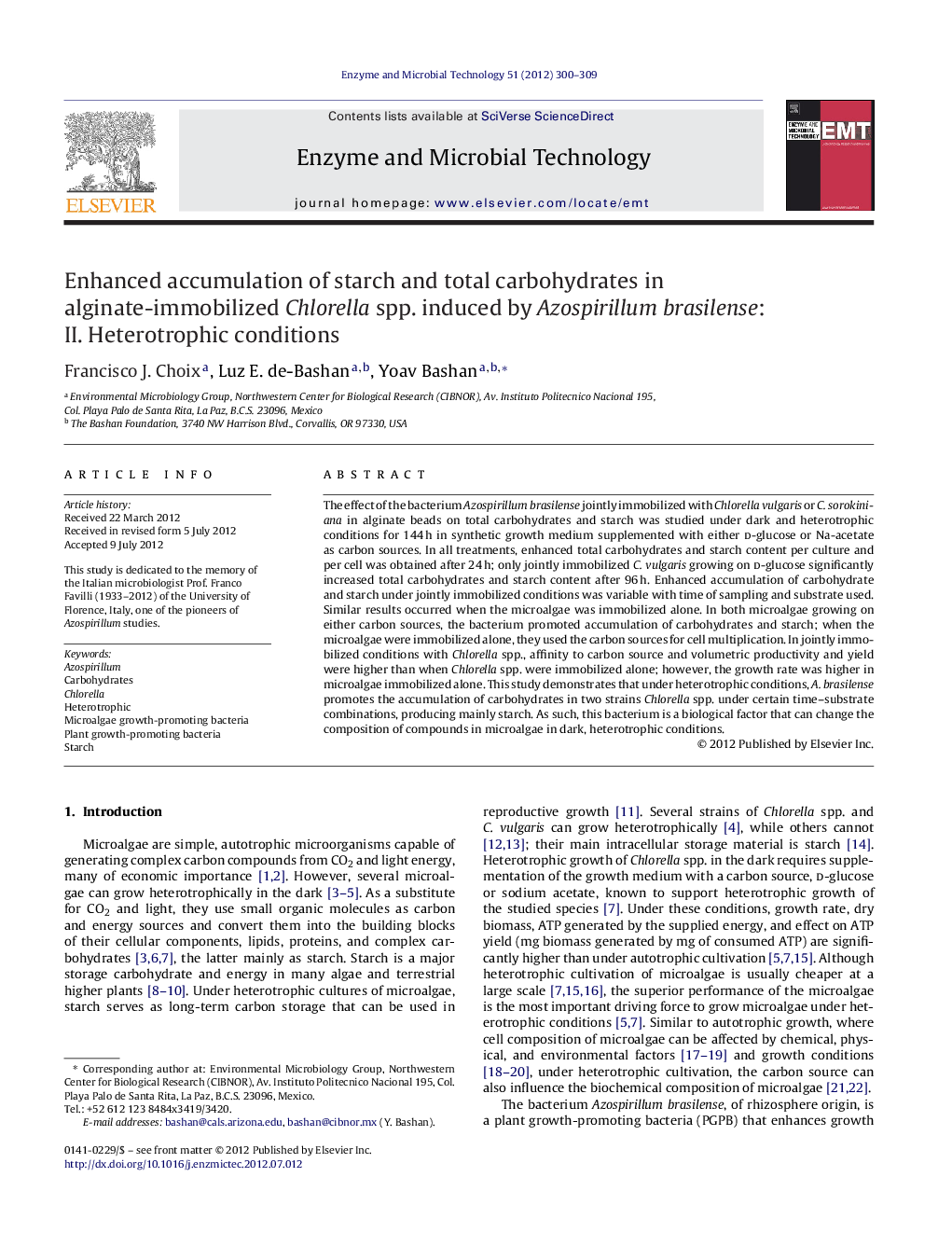| Article ID | Journal | Published Year | Pages | File Type |
|---|---|---|---|---|
| 17221 | Enzyme and Microbial Technology | 2012 | 10 Pages |
The effect of the bacterium Azospirillum brasilense jointly immobilized with Chlorella vulgaris or C. sorokiniana in alginate beads on total carbohydrates and starch was studied under dark and heterotrophic conditions for 144 h in synthetic growth medium supplemented with either d-glucose or Na-acetate as carbon sources. In all treatments, enhanced total carbohydrates and starch content per culture and per cell was obtained after 24 h; only jointly immobilized C. vulgaris growing on d-glucose significantly increased total carbohydrates and starch content after 96 h. Enhanced accumulation of carbohydrate and starch under jointly immobilized conditions was variable with time of sampling and substrate used. Similar results occurred when the microalgae was immobilized alone. In both microalgae growing on either carbon sources, the bacterium promoted accumulation of carbohydrates and starch; when the microalgae were immobilized alone, they used the carbon sources for cell multiplication. In jointly immobilized conditions with Chlorella spp., affinity to carbon source and volumetric productivity and yield were higher than when Chlorella spp. were immobilized alone; however, the growth rate was higher in microalgae immobilized alone. This study demonstrates that under heterotrophic conditions, A. brasilense promotes the accumulation of carbohydrates in two strains Chlorella spp. under certain time–substrate combinations, producing mainly starch. As such, this bacterium is a biological factor that can change the composition of compounds in microalgae in dark, heterotrophic conditions.
► Azospirillum-Chlorella interaction yielded accumulation of carbohydrates and starch under dark heterotrophic conditions. ► The use of d-glucose or Na-acetate as carbon sources yielded different amounts of accumulated carbohydrates. ► A. brasilense promotes accumulation of carbohydrates in Chlorella spp. under certain time–substrate combinations. ► The main production was starch. ► Azospirillum is a biological factor that can change the composition of compounds in microalgae.
